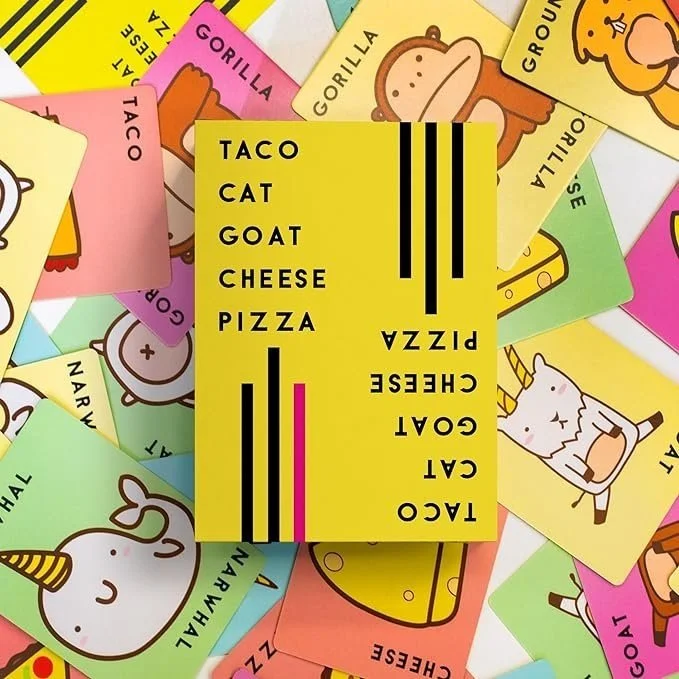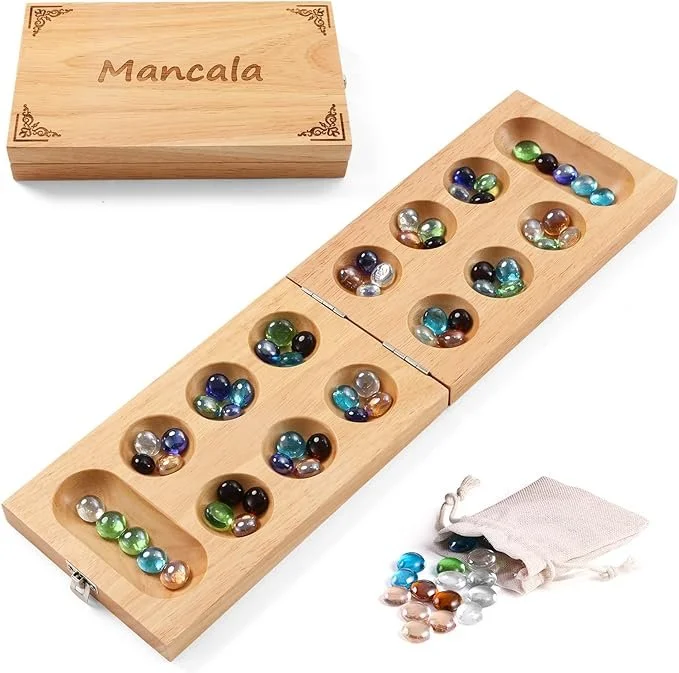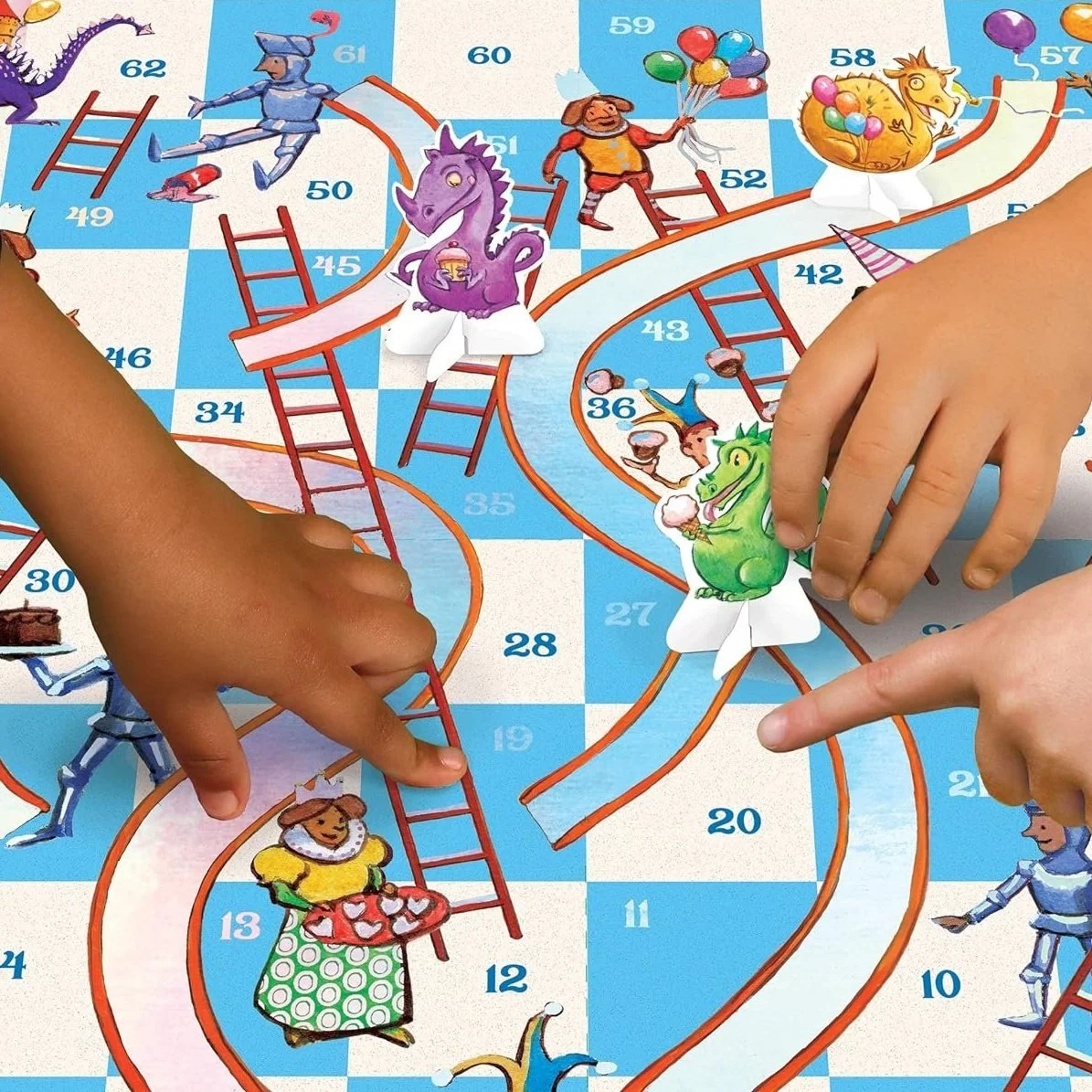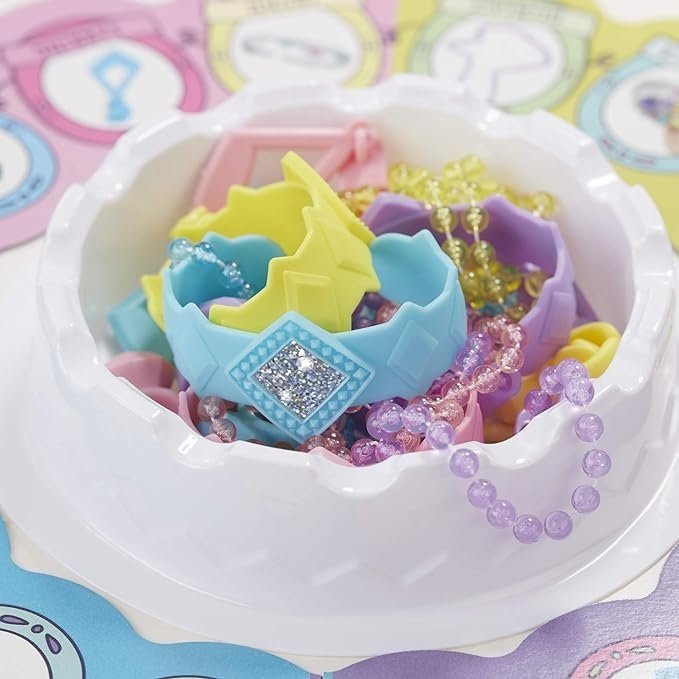Counseling Games for Kids
In counseling, games are experiential tools that build rapport and contribute to effective counseling outcomes. Through these activities, children not only acquire practical skills, but also develop a deeper understanding of themselves and their relationship with others. By nurturing essential social and emotional competencies, we can equip kids with the tools they need to navigate life's challenges with a growth mindset, compassion, and integrity.
The Value of Cooperative Play
Cooperative games help kids learn the significance of collaboration, integrity, and respect. Through shared objectives and collective problem-solving, kids can build interpersonal skills while exercising ethical conduct and resilience.
Sportsmanship can be a difficult emotional and behavioral concept for kids. We can support the development of sportsmanship by promoting a combination of attitudes and behaviors that encourage fair play and positive competition. Here are some strategies that may help:
Lead by Example: Model good sportsmanship in our own behavior.
Teach the Rules: Ensure that all participants understand the rules of the game. This sets expectations and reduces potential for frustration.
Emphasize Effort Over Outcome: Encourage kids to focus on giving their best effort rather than solely on winning. Do this by highlighting the importance of practice, teamwork, and personal growth.
Praise Positive Behavior: Acknowledge and praise acts of sportsmanship, such as congratulating opponents, helping teammates, and showing respect for rules and officials.
Address Poor Behavior: Correct inappropriate behavior promptly and constructively. Use negative incidents as teachable moments to discuss the importance of fair play and respectful conduct.
Foster Empathy: Help kids understand how their actions impact others by discussing perspectives from different viewpoints.
Encourage Self-Control: Teach kids techniques for managing emotions like frustration, disappointment, and anger; and empower them to stay calm and focused in challenging situations.
Focus on Teamwork: Emphasize the importance of working together toward a common goal and encourage cooperation, communication, and support among teammates.
Promote Respect: Teach kids to show respect for opponents, coaches, officials, and spectators, regardless of the outcome of the game.
Facilitate Discussion: Create a safe space where kids can reflect on their own behavior and the behavior of others.
Practicing positive sportsmanship has benefits beyond on the confines of a game, it helps kids develop resilience through adversity and gives them the confidence to navigate challenges.
Keep an eye out for our SEL (social and emotional learning) Enhancement tips to level-up these games for counseling sessions!
Memory Game
This emotions matching game uses colorful cards to help kids identify and understand a range of feelings in a playful context. Matching facial expressions to corresponding feelings enhances emotional intelligence, fosters self-awareness, and promotes communication skills.
SEL Enhancement: Contextualize feelings by asking introspective questions: “You made a match! How do you think that face is feeling? Can you tell me about a time you felt like that?”
Taco Cat Goat Cheese Pizza
This fast-paced, easy-to-learn card game disarms tension and helps a child feel at ease in a therapeutic setting.
Card games are FUN and while counseling can be hard work, it should also have elements of levity. Games can help establish trust and rapport between the therapist and the child which allows for meaningful therapeutic work to take place.
Magnetic Fishing Game
This fishing game helps kids practice hand-eye coordination and number/color recognition while introducing them to simple rules and directives.
SEL Enhancement: Use the fish pairs to explore likes and dislikes:
Red: a food you like / a food you dislike
Orange: a place you like / a place you dislike
Green: a person you like / a person you dislike
Blue: an activity you like / an activity you dislike
Purple: a feeling you like / a feeling you dislike
Mancala
Mancala is a peaceful game of strategy that helps kids with prediction and addition skills.
SEL Enhancement: Since this game tends to be played quietly, consider putting on soft music and encouraging mindfulness while playing.
Slips & Ladders
This game of chance is a great way for kids to experience the ups and downs of game-play. It also helps them with counting and number recognition.
SEL Enhancement: Use the “slips” to talk about coping skills! As you slide down, name something that helps you feel better when you’re down.
Jewelry Game
This jewelry game offers kids a fun visual way to observe competitive progression and practice winning and losing with integrity.
SEL Enhancement: Use this game to practice gratitude. If you get the “cursed ring,” think of one thing in your life that you are grateful for.
Tumble Tower
A tumble tower is a great hands-on game to break the ice. This game requires competitive teamwork to get the tower as high as possible.
SEL Enhancement: Write your own questions on the blocks, or print and adhere our free question tabs and answer them as you play!
Sneaky, Snacky Squirrel Game
With an element of imaginative play, this squirrel game encourages color recognition and hand-eye coordination.
SEL Enhancement: Use the colors on the spinner to practice mindfulness through the senses. When you spin a color, talk about the corresponding sense.
Yellow: What is something you can see?
Purple: What is something you can hear?
Red: What is something you can smell?
Blue: What is something you can touch?
Green: What is something you can taste?
Tic-Tac-Toe
Tic-Tac-Toe is a classic game of strategy that can be learned and played quickly. Because the game moves fast, it is an ideal way for kids to practice winning and losing with integrity.
SEL Enhancement: Make the game more interesting by having the loser pick a “Talk or Do” challenge. If no one wins, both people pick a challenge!
Explore more recommended games and toys here!










